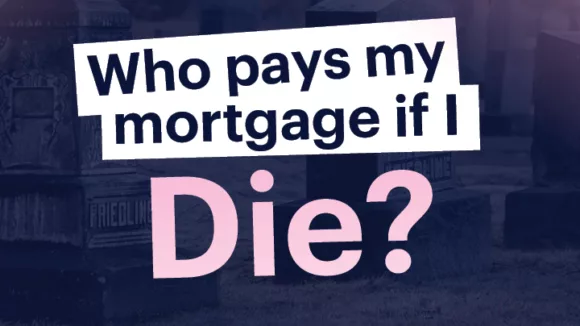
Insurance
What sort of insurance should I get when buying a new-build investment property?
In this article you’ll learn exactly what you need to know about how to work with an insurance broker during the due diligence process.
Mortgages
8 min read

Author: Peter Norris
Mortgage broker for over 10 years, property investor and Managing Director at Opes Mortgages
Reviewed by: Ed McKnight
Resident Economist, with a GradDipEcon and over five years at Opes Partners, is a trusted contributor to NZ Property Investor, Informed Investor, Stuff, Business Desk, and OneRoof.
Most Kiwi property owners know if you own a house … you probably need house insurance. You want to be protected if your house burns down or there is a natural disaster.
After all, we often think our house is the most valuable asset we’ll ever own.
But really, the biggest asset you have isn’t your house. It’s you and your ability to earn an income.
That’s why it’s important that all property owners ask, “What will happen to my mortgage, if I get sick, can’t work, or …. die?”
In this article, you’ll learn how to make sure your mortgage is paid even if the worst should happen? And yes, we’re talking about insurance.
Before you roll your eyes, and think: “You’re just trying to sell me insurance” … hear us out: Not everyone needs personal insurance. But some people do.
In a sentence, you might need personal insurance if: Your personal investment plan will be derailed if you die or can’t earn an income.
We’ll get into more detail in a second, but you might need insurance if you are:
On the other hand, you may not need insurance if you are:
Think about this way … if you lose your job tomorrow, how long could you afford to keep paying your mortgage?
If you are thinking “I’d be sweet for ages … I don’t have a mortgage” or “I have heaps of savings” … it sounds like you might not need personal insurance. You can stop reading now.
If you are thinking “I’d be out on the street in 4 weeks” … then you probably need to think about getting some sort of insurance.
So, if you’re still reading, let’s backtrack a bit and explain more about personal insurance and how it can be helpful for your situation.
Personal insurance is a contract you create with an insurance company. This is to stop an illness or an accident derailing your investment plans, and ensures your mortgage is paid.
Personal insurance is an umbrella term that covers lots of specific insurance policies –
You may not need all of these. But you might need one or two to cover you in specific situations.
Generally, it’s there to protect people and their family if a main breadwinner loses their income or can’t pay their mortgage (either by death or injury).
Personal insurance can be more important than house and contents insurance.
Why? Because statistically, it’s more likely you will get cancer, have a heart attack, endure a stroke, or die (gulp!) than your house catching fire.
Think about it this way: imagine a group of 50 people you know all standing in a room.
Now, ask them to raise their hands if they’ve had or known someone to have cancer, have 6 weeks off work for health issues, or face redundancy.
Now, ask them to raise their hands if they know someone who lost their house to a fire.
It’s easy to understand how much more statistically likely it is that you will get sick, hurt, or die… than encounter a house fire.
Rather than going through the nitty-gritty of each policy and insurance type, here are some examples of where personal insurance could keep the mortgage being paid … even if something happens to you.
When you’re young and renting, you might not need much insurance.
But Bob and Susie have recently bought a house together. It’s their first home and they worked hard with the bank to get their mortgage approved.
Even though they want to start a family, they are both working … because they need two incomes to pay the mortgage.
But what happens if Bob or Susie (unfortunately) die? It’s a grim thought, but an important one.
If Bob dies, then Susie will be on one income. After grieving, she’ll need to get back to work quickly so she has enough money to pay the mortgage.
But even then, the couple needed BOTH incomes to pay the mortgage.
Susie may need to sell the house quickly and either downsize their home or go back to renting.
This is clearly a bad situation that no-one wants to be in. And unfortunately these situations do happen.
But, if Susie and Bob both took out life insurance, it could be a different story.
For instance, if Bob was insured for $1,000,000 if he dies what happens?
Yup, it’s still going to be traumatic for Susie. No-one wants to lose their partner. But, the insurance money will make things a little bit easier. She could use the money to pay down the mortgage to a level she could afford by herself.
She’ll still be heartbroken, but she won’t be forced to move out of their home. And life will be a little easier than it could have been.
While we’ve talked about life insurance here, Susie and Bob could have also considered mortgage protection insurance.
This wouldn’t have paid down the mortgage in one hit (like life insurance can). But, it would have covered the mortgage payments for a bit while Susie regrouped her life.
This is an example of how different types of insurance can be used to cover the same scenario. This can get complex, which is why it’s a good idea to talk through these with an insurance adviser.
Now let’s take the example of a property investor – Pete. Pete is preparing for his retirement and has recently purchased 2 rental properties.
Because he recently purchased them they are negatively geared, and he has to top them up by $200 a week each.
So in total he’s investing $400 a week into the two rentals.
He’s comfortable doing this because he earns a really good salary of $120k a year. He works as an engineer at the Tiwai Point smelter in Southland.
But what happens if the smelter closes and Pete is made redundant? His mortgages on his investment properties haven’t changed.
He still needs to top these up by $400 a week, but he’s now lost his job … and there aren’t many other employers he could go work for in Invercargill for the same sort of money.
So Pete might say, “I need to sell these properties, I can’t afford them any more!”
This causes two issues:
The story would be different if Pete had income protection insurance. That’s where if Pete loses his job, the insurance company will pay him a portion of his salary (depending on his level of cover).
If Pete then gets made redundant, he can use that money to continue paying for his rentals while he looks for a new job.
That means he won’t have the stress of selling his properties, and his retirement plan remains intact.
How much Pete gets from the insurance company (and how long it lasts) depends on the level of insurance he’s taken out … and his specific policy.
For example, if Pete is frugal and doesn’t spend a lot, he might not need much insurance. But, if he has a few kids (and therefore spends a lot of money), he might need more income protection insurance.
Again, this is why it’s important to speak to an adviser (rather than organising it yourself online), so they can make sure you get the right amount of insurance and cover yourself for the areas you’re worried about.
No, not everyone needs personal insurance.
Take that last example of Pete the property investor. If he was already retired or his portfolio was cashflow neutral … he may not need as much personal insurance.
Or if you have a couple and one earns a high income, and the other doesn’t work. You might need insurance for the higher-income earner … but not for the person not earning an income.
It’s not that the low-income earner isn’t important or valued, but that if their income stops it might not have a large impact on the family’s finances.
So, the key message is: What sort of personal insurance you need will depend on your personal circumstances.
But these conversations are complex because there are a lot of “what if” questions.
That’s why it’s a good idea to sit down with an adviser who has seen the bad stuff happen and knows the answers to those “what if” questions.
Because the “right” answer to a question will depend on you and your life – your family, your goals.
If you’re looking for a recommendation of which insurance adviser to use, consider using Opes Mortgages, our sister company here at Opes Partners.
Mortgage broker for over 10 years, property investor and Managing Director at Opes Mortgages
Peter Norris, a certified mortgage adviser with 10+ years of experience, serves as the Managing Director at Opes Mortgages. Having facilitated over $1.2 billion in lending for 2000+ clients, Peter is a respected authority in property financing. He's a frequent writer for Informed Investor Magazine and Property Investor Magazine, while also being recognized as BNZ Mortgage Adviser of the Year in 2018 and listed among NZ Adviser's top advisers in 2022, showcasing his expertise.
This article is for your general information. It’s not financial advice. See here for details about our Financial Advice Provider Disclosure. So Opes isn’t telling you what to do with your own money.
We’ve made every effort to make sure the information is accurate. But we occasionally get the odd fact wrong. Make sure you do your own research or talk to a financial adviser before making any investment decisions.
You might like to use us or another financial adviser